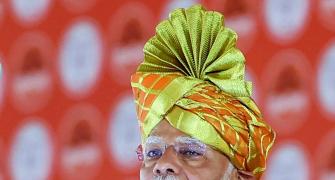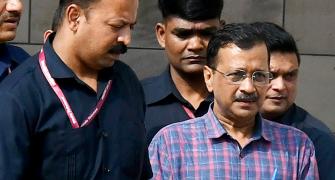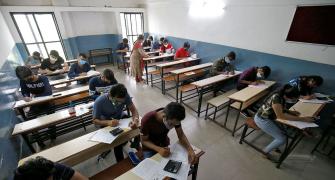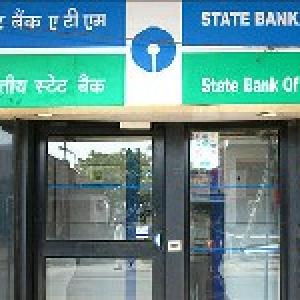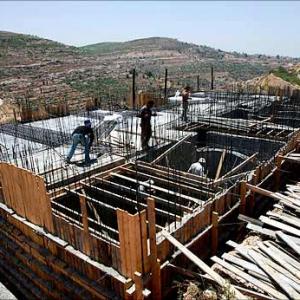 After Moody's Investors Service on Tuesday downgraded the standalone rating of the country's largest lender, State Bank of India, the government has swung into action and started taking stock of capital requirements of the public sector banks and their ratings.
After Moody's Investors Service on Tuesday downgraded the standalone rating of the country's largest lender, State Bank of India, the government has swung into action and started taking stock of capital requirements of the public sector banks and their ratings.
Public sector banks account for nearly 70 per cent of the loans in the country.
On Wednesday, the finance ministry asked all public sector banks to furnish details of their latest ratings -- both internal and external -- and indicate their near-term capital-raising plans, to form an idea on the banks' capital adequacy ratio.
The government also sought to know the banks' Tier-I capital in the overall capital adequacy ratio and non-performing asset ratio, said the chairman and managing director of a public sector bank.
Banks are rated by external agencies like Standard and Poor's and Moody's, while the Reserve Bank of India carries out their internal rating on the basis of their capital adequacy, asset quality, management, earnings, liquidity and system and control.
The rating is assigned after an annual financial inspection by RBI.
"Following SBI's rating downgrade, the government wants to know the latest figures of capital, NPA and ratings.
"It wants to make an assessment of banks' capital requirements and outlook on asset quality," said the chairman and managing director of another public sector bank.
SBI reported a Tier-I capital ratio of 7.60 per cent as on June 30, which is lower than C-rated Indian banks.
Additionally, banks have also been asked to give details on funds
With interest rates staying high in the domestic markets, some of the Indian banks had opted to raise funds from foreign territories where rates were lower.
Moody's had on Tuesday downgraded the standalone rating of SBI to D+ from C-, citing "modest" capital and weakening asset quality.
Bankers said the rating agency was also in talks with individual banks to review ratings.
"Banks that do not have significant exposure overseas and, therefore, are insulated from the current global financial crisis, may not see their ratings getting affected," said a top executive of a government-owned bank.
Though most of the banks may not need to raise capital in the current financial year due to slower credit offtake, their asset quality is expected to come under pressure, following migration to system-driven classification of non-performing assets.
The government had asked banks to migrate to a system where all the loans were classified as non-performing by technology, without any human intervention.
The deadline to meet the system ended on September 30. Bankers said, as the new system came into force from this quarter, they expected to see slippages going up, which would exert pressure on profitability.
The government is also assessing the capital requirements of banks for the next 8-10 years and weighing options that would enable it to support banks' capital needs, while maintaining the minimum 58 per cent ownership.
The government also wants to ensure its banks maintain a minimum Tier-I capital of eight per cent, higher than the regulatory requirement of six per cent.






